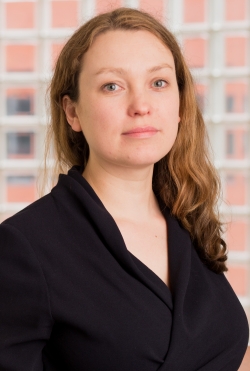
by Polly Tolley, CAS Director of Impact.
This article was first published in The Herald on 4 March 2023.
IN 2021/22 the Scottish Citizens Advice network issued more than a million pieces of advice to people in Scotland.
The people we help are representative of wider society so trends in the advice being sought from us act as a mirror of problems in the wider population: we’re often the first to spot serious issues before they enter public consciousness. And because we provide advice on multiple different types of problem – including money, social security, employment, housing, consumer, family and legal issues – we also understand how these problems inter-relate in a way that many other single-issue organisations don’t. We are like the proverbial canary in the coalmine.
The depth, scale and complexity of the cost of living crisis has concerned us for some time. We recently reported a significant turning point for our network: that is that energy advice had overtaken advice given on a social security entitlement, such as Universal Credit, for the first time. From our perspective, this is significant because it tells us that the single biggest problem out there is now no longer something that affects a specific demographic or group. Our current "biggest problem" is something that affects everyone.
What’s also concerning is that we can see that some people are experiencing this crisis worse than others, are suffering more than most, and are not receiving sufficient support. Our CABs are seeing the highest demand for cost of living advice from single, working-age households and those in council rented accommodation.
Council tenants made up 17 per cent of all Scottish CAB clients during the period from October-December last year. However, this percentage rises in key cost of living categories, such as food insecurity where they make up 39% of demand, utilities (36%) and council tax debt (34%).
Meanwhile, during that same period single, non-pensioner households made up 20% of all CAB clients, but again, in the key cost of living categories their figures are higher: 34% for utilities, 38% for food insecurity, 31% for risk to income and 35% for crisis support.
These aren’t the usual, vulnerable groups that are the normal target of government support. That’s not to say that groups like children and older people aren’t worthy recipients of help and that we haven’t seen some helpful interventions, such as the £400 Energy Bill Support Scheme and the increase to the Scottish Child Payment. Those measures make a difference but they don’t solve the problem.
The brutal truth is that measures to support, for example, single, middle-aged men don’t elicit sympathy, grab headlines or win votes in the way that addressing child poverty does. But is that to say their experience isn’t as traumatic, that their "lived experience" holds a lesser value? By highlighting the way that these groups are being left behind we aim to show governments and other key stakeholders that they need to adjust public policy and the solutions put in place to make sure these people get the help they need and don’t fall through the gaps.
Our political discourse and our fight for equality often now centres on those who’ve historically been marginalised. But CAS data seems to suggest that some of those most impacted by this crisis aren’t those ‘topical’ groups. We have a new set of forgotten groups whose voices aren’t heard.
So, the canaries at CAS will need to sing for them.